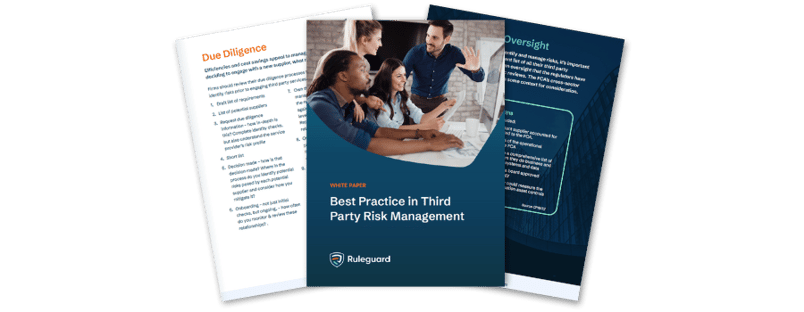%2024%20(1).png?width=150&height=161&name=Recognised%20CPD%20Badge%20(transparent)%2024%20(1).png)
What’s changing and why?
Back in 2017, you may recall that the UK set up the Trust Registration Service (TRS) to fulfil its obligations under the Fourth Money Laundering Directive (4MLD). The TRS was set up to improve transparency regarding beneficial owners of assets held in trusts. Trustees were obliged to register a trust if it was liable to pay:
- income tax
- capital gains tax
- inheritance tax
- stamp duty land tax or stamp duty reserve tax.
Then came the Fifth Money Laundering Directive (5MLD) and additional rules were introduced in October 2020. This resulted in extending the scope of TRS’s remit and widening the range of trusts obliged to disclose information.
New rules introduced on 6 October 2020 extend the scope of the trust register to UK and some non-UK trusts, with some specific exclusions, regardless of whether or not the trust is liable to pay any tax.
Source: Trust Registration Service: what is the Trust Registration Service?
Probably.
There are few exceptions, but most UK-based trusts and some non-UK trusts will be added to the list of trusts required to register.
Trustees need to consider the type of trust that has been formed & identify whether or not they have a new obligation to register.
With these rules, you’ll hear reference to Express Trusts and non-UK resident trusts, which now fall within the TRS’s remit. This includes trusts that may have existed on 6 October 2020 when the rules were implemented.
HMRC describes these trusts as follows:
An express trust is a trust created deliberately by a settlor, usually (but not always) in the form of a document such as a written deed or declaration of trust.
Non-UK resident trusts are trusts where the trustees are not resident in the UK for tax purposes.
Watch out!
Don't get caught out. Some trusts existing on or after 6 October 2020 and wound up before 1 September 2021 still need to register on the TRS before closing the account.
What do trustees need to do?
The registration requires specific details to be provided to HMRC which must then be maintained. This is an ongoing task: where information changes, the register must be updated.
Whilst all trustees are responsible for meeting their obligations, it is usually the lead trustee, nominated by fellow trustees, who is responsible for ensuring the registration is made and maintained.
There should be clarity amongst the trustees regarding who has ownership of this task and for keeping fellow trustees updated on progress.
Information is submitted online relating to the lead trustee, co-trustees, settlor and all beneficiaries. This includes, but is not limited to, the following:
- name
- date of birth
- country of residence
- nationality and
- details of their beneficial interest in the trust
NB: information will only be released under limited circumstances, namely to law enforcement agencies.
Trusts need to ensure that they have processes in place for collating data, updating those records and ensuring their accuracy. Monitoring this process and evidence to support the records help demonstrate compliance with the regulations.
Anything else you should know?
It’s not just trustees that need to pay attention.
Other firms must check that client trusts are aware of their obligations and meet the registration requirements. Firms need to consider third party monitoring of those client trusts. A formal confirmation of TRS registration is required (and then any up-to-dates). How do you keep on top of that exercise and ensure you don't miss any updates?
Firms should review contractual arrangements. Do your arrangements allow you appropriate access to the information that you need? What information do you currently gather? How do you know that your records are accurate?
What happens if legal obligations are not met?
HMRC has the power to impose a fixed penalty on a trust. This could be imposed where trustees fail to register the trust or do not maintain details on the register.
How Ruleguard can help you:
Ruleguard is an industry-leading software platform designed to help regulated firms manage the burden of evidencing and monitoring compliance. It has a range of tools to help firms fulfil their obligations across the UK, Europe and APAC regions.
With Ruleguard, key areas of compliance can be automated and put under direct review by appropriate individuals across the business. This means that monitoring can be embedded directly into business-as-usual processes, vastly simplifying the process and significantly reducing the overhead required to carry it out.
Ruleguard has the potential to revolutionise what your firm understands by compliance monitoring and deliver best-in-class governance, oversight and management of compliance risk.
Key features of the Ruleguard platform include:
- Evidence and approvals are gathered in real time
- Responsible individuals sign off attestations within a framework designed for your firm
- Documentation reviews and updates are managed automatically
- Key compliance workflows can be designed directly within the solution
- Management information is available which directly provide stakeholders with an up-to-the minute overview of compliance results.
Please contact us for further information on: Tel: 020 3965 2166 or hello@ruleguard.com.
Webinars:
Ruleguard hosts regular events on a various regulatory topics. Out next event is about SM&CR and takes place on Thursday 25th August at 10.30 am.
To register your interest or learn more, please click here.
White Papers:
Request a complimentary copy of our White Paper on Best Practice in Third-Party Risk Management click here.
See our blog page for further articles or contact us via hello@ruleguard.com.
Visit our website to find out more about how Ruleguard can help: https://www.ruleguard.com/platform

Head of Client Regulation| Ruleguard











